paranormal
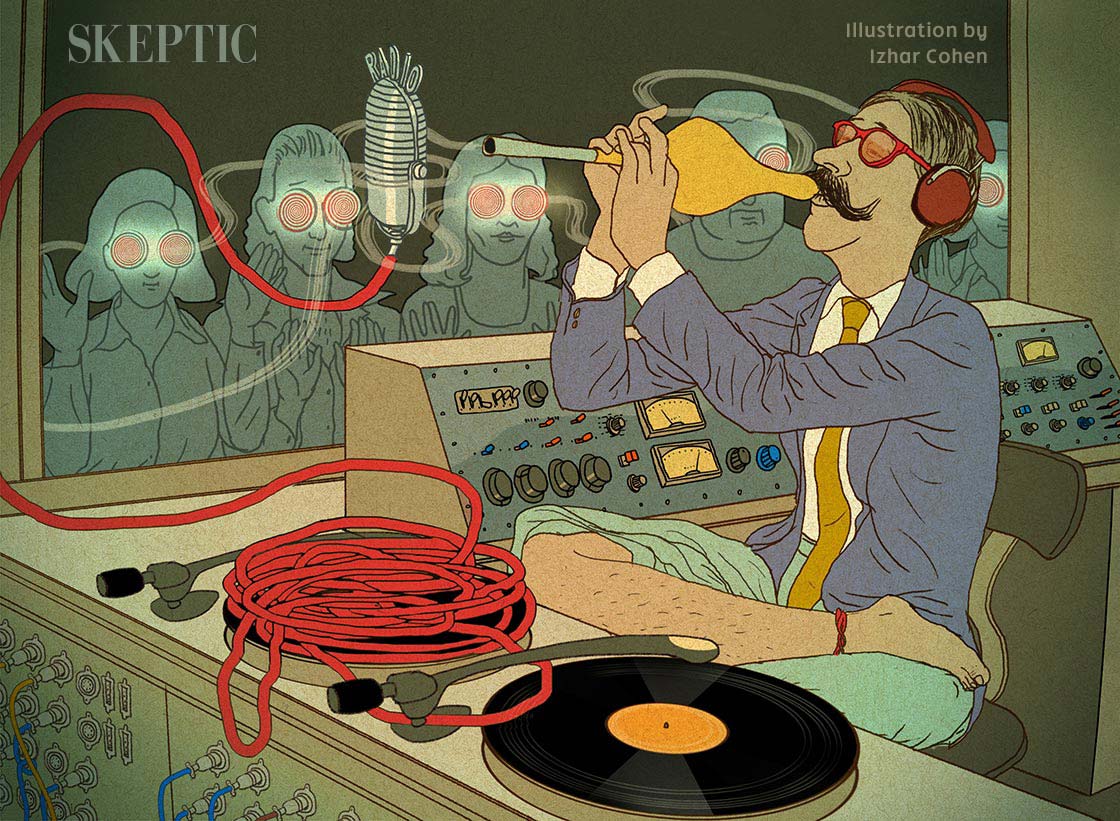
Most skeptics are familiar with modern psychics who pretend to read people’s minds and talk to dead people. In this review essay, Michelle Ainsworth discusses the many mind readers and fortune tellers between 1920 and 1940 who practiced their art of cold reading on the radio, fooling people then as they do today into believing that somehow the spirits were able to come through from the great beyond into radio stations.
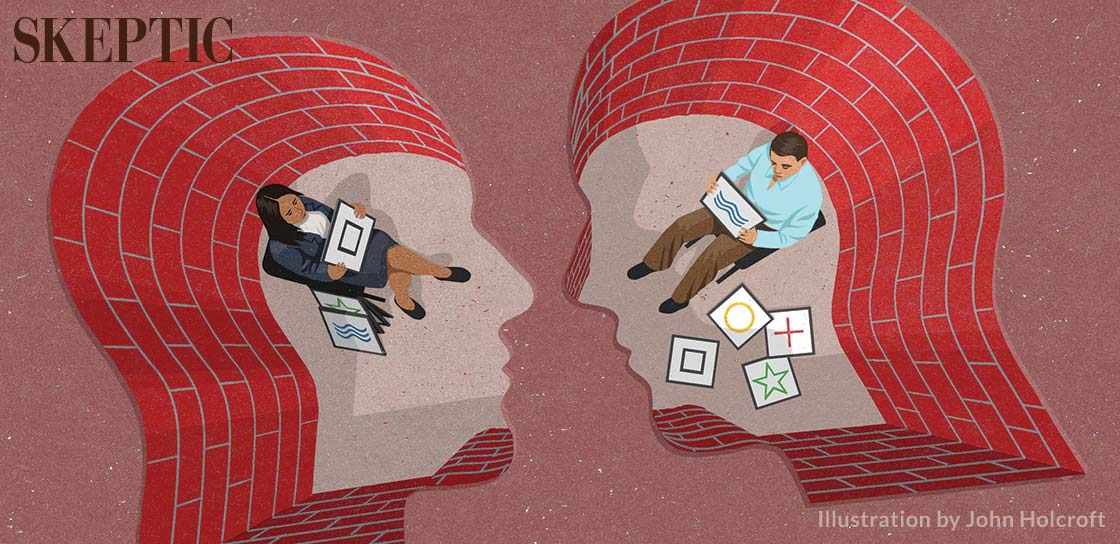
A three-part debate between Steven Pinker and Brian D. Josephson, initiated from a private email exchange in which Josephson challenged Pinker’s claims in a BBC radio program that there is no rational reason to believe in ESP. Here, Pinker first makes his case, followed by Josephson’s critique, and then Pinker’s response to that critique. As is our custom, we prefer to steel-man a position someone else holds, especially with a controversial subject like ESP, but better still is to have…
In episode 220, Michael Shermer speaks with Charles Foster about his book Being a Human: Adventures in Forty Thousand Years of Consciousness. Drawing on psychology, neuroscience, natural history, agriculture, medical law and ethics, Charles Foster makes an audacious attempt to feel a connection with 45,000 years of human history.
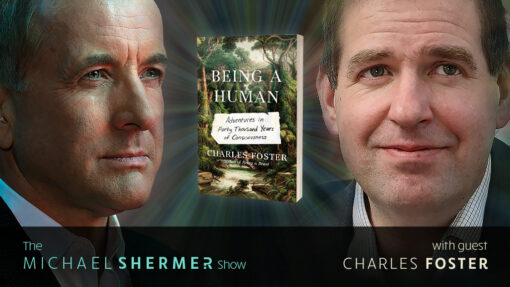
In episode 220, Michael Shermer speaks with Charles Foster about his book Being a Human: Adventures in Forty Thousand Years of Consciousness. Drawing on psychology, neuroscience, natural history, agriculture, medical law and ethics, Charles Foster makes an audacious attempt to feel a connection with 45,000 years of human history.
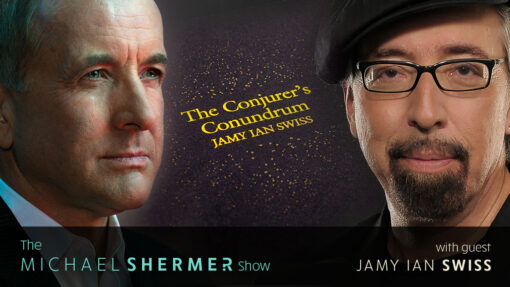
In episode 195, Michael speaks with internationally acclaimed sleight-of-hand artist and 35-year activist for scientific skepticism, Jamy Ian Swiss, about his lively, personal book, The Conjuror’s Conundrum, that takes readers on a magical mystery tour of the longstanding connection between magic and skepticism.
In episode 195, Michael speaks with internationally acclaimed sleight-of-hand artist and 35-year activist for scientific skepticism, Jamy Ian Swiss, about his lively, personal book, The Conjuror’s Conundrum, that takes readers on a magical mystery tour of the longstanding connection between magic and skepticism.
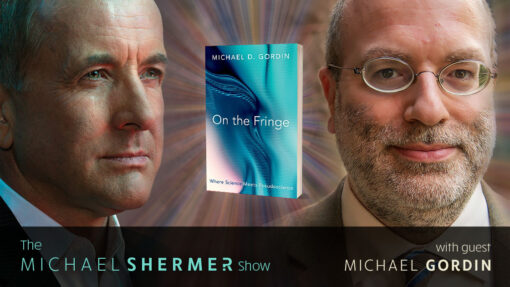
Everyone has heard of the term “pseudoscience,” typically used to describe something that looks like science, but is somehow false, misleading, or unproven. In episode 191, Michael explores with Michael Gordin the philosophical and historical attempts to address the problem of scientific demarcation.
Everyone has heard of the term “pseudoscience,” typically used to describe something that looks like science, but is somehow false, misleading, or unproven. In episode 191, Michael explores with Michael Gordin the philosophical and historical attempts to address the problem of scientific demarcation.
In loving memory of our friend James Randi who passed away at the age of 92 on October 20, 2020 we present a classic lecture on skepticism given at Caltech by James Randi on March 22, 1992 at the inaugural session of the Distinguished Science Lecture Series hosted by Michael Shermer and presented by The Skeptics Society in California (1992–2015). With wit and wonderfully illustrative examples, Randi teaches us several lessons on the scientific investigation of unusual claims.
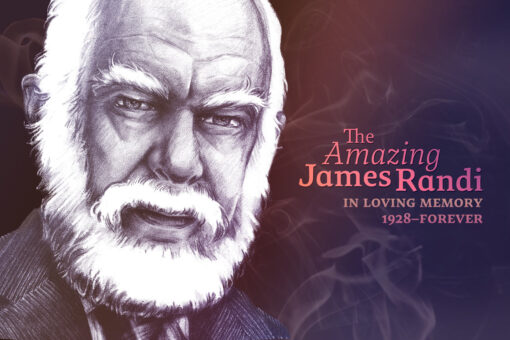
A classic lecture on skepticism was given by James Randi on March 22, 1992 at the inaugural session of the Distinguished Science Lecture Series hosted by Michael Shermer and presented by The Skeptics Society in California (1992–2015). With wit and wonderfully illustrative examples, Randi teaches us several lessons on the scientific investigation of unusual claims.
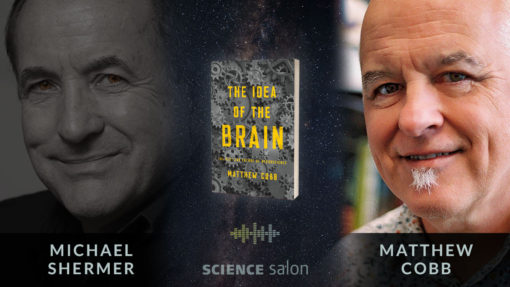
In Science Salon # 115, Michael Shermer speaks with scientist and historian Matthew Cobb about his book The Idea of the Brain: The Past and Future of Neuroscience which traces how our conception of the brain has evolved over the centuries.
In Science Salon # 115, Michael Shermer speaks with scientist and historian Matthew Cobb about his book The Idea of the Brain: The Past and Future of Neuroscience which traces how our conception of the brain has evolved over the centuries.
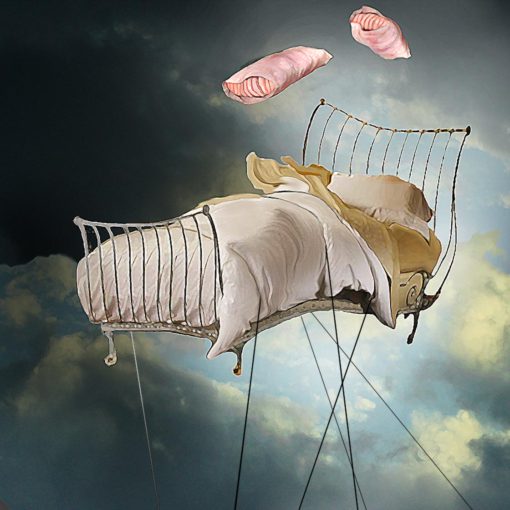
Sleep paralysis is a type of hallucination that occurs in the fuzzy borderlands between wakefulness and sleep. Former tripping-hippie-conspiracy-theorist-turned-skeptic Heidi Love shares first-hand accounts of her experiences lucid dreaming under sleep paralysis.
In this week’s eSkeptic, Michael Shermer interviews Dr. Leonard Mlodinow about his new book: Elastic: Flexible Thinking in a Time of Change; and Daniel Loxton reflects on the value of listening in order to first understand paranormal beliefs and then communicate effectively with those who hold them.
Daniel Loxton reflects on the value of listening in order to first understand paranormal beliefs and then communicate effectively with those who hold them.
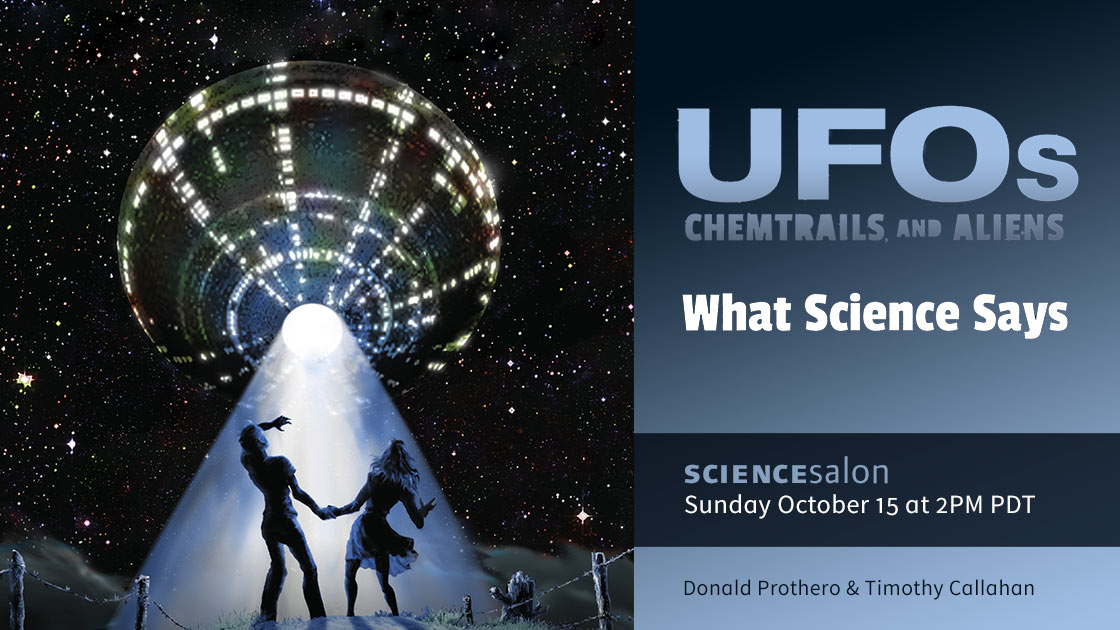
UFOs. Aliens. Strange crop circles. Giant figures scratched in the desert surface along the coast of Peru. The amazing alignment of the pyramids. Strange lines of clouds in the sky. The paranormal is alive and well in the American cultural landscape. In UFOs, Chemtrails, and Aliens, Don Prothero and Tim Callahan explore why such demonstrably false beliefs thrive despite decades of education and scientific debunking.
In this week’s eSkeptic, John E. Buckner V and Rebecca A. Buckner discuss compartmentalization and conformity as possible socio-psychological mechanisms that might explain how individuals, through education, can decrease their paranormal/supernatural beliefs without improving their critical thinking skills.
Sometimes strange things happen, the causes for which seem hard to explain. Sometimes, these occurrences are referred to as “supernatural” or “paranormal.” But, what do those words really mean? In this week’s eSkeptic, Michael Shermer describes what is meant by “supernatural.”
In this week’s eSkeptic, we announce: our next geology tour—Central California Classics (January 17–19, 2015); our next distinguished science lecture—by Dr. Bradley Voytek (Oct 19); Weekly Insights from Blake Smith and Barbara Drescher; Michael Shermer’s October column in Scientific America; and MonsterTalk interviews Daniel H. Wilson about a robot apocalypse.
Do you know someone who has had a mind altering experience? If so, you know how compelling they can be. A life can be changed or an entire religion founded on the basis of a single brain-generated hallucination. These phenomena are so powerful that throughout history seekers of knowledge have sought to induce them. They are one of the foundations of widespread belief in the paranormal. But as skeptics are well aware, accepting them as reality can be more than…
NEXT →

















